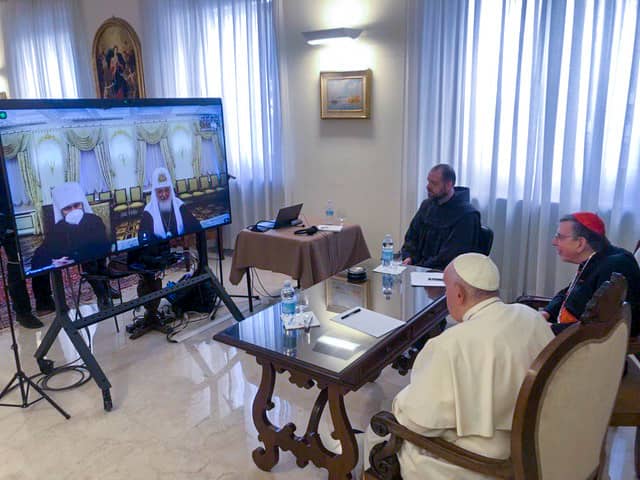DENVER – Over the last three weeks, Christians and others concerned with religious freedom have been watching the drama play out in Pakistan, where Asia Bibi was finally released from nine years on death row on a blasphemy charge only to be forced into hiding inside the country with no clear exit strategy for asylum.
Bibi, an illiterate Catholic mother of five, at least has the good fortune that her case has become something of an international cause célèbre, so it garners steady media and political attention. Yet hers is hardly an isolated story, with most other victims of religious persecution around the world languishing in silence.
In this context, it’s worth revisiting a landmark study released in the spring of 2017 by “Under Caesar’s Sword”, a joint partnership between Notre Dame and the Washington, D.C.-based Religious Freedom Institute, which is devoted to understanding global Christian communities. In this case, the study focused on Christian responses to persecution in 25 nations, generally those where anti-Christian oppression is the strongest and most violent.
Although there are several annual reports on religious freedom violations worldwide, few focus specifically on anti-Christian persecution, and this is the first to ever ponder not merely the fact of oppression but how Christians respond to it.
In terms of why the focus on Christians, the study couldn’t have been clearer: “In short, Christians are the most widely targeted religious community, suffering terrible persecution globally.”
Further, the study noted another compelling reason for the focus on Christians: “Perhaps the most troubling aspect of this persecution is the lack of press coverage it receives … the mainstream media and human rights organizations give it little attention.”
As an example, the study noted that during a period from 2008 to 2011, Human Rights Watch, one of the world’s most respected watchdog groups, devoted just 2.5 percent of its reports to religious persecution of any sort, and fewer than half that number included Christians. This despite the fact that the low-end estimate for the number of Christians killed for their faith around the world every year works out to one new martyr almost every hour of every day.
In terms of the main findings, the study found three basic options for Christians facing persecution:
- “Strategies of survival,” which are by far the most common. They include going underground, flight, and some form of accommodation with oppressive regimes.
- “Strategies of association,” meaning building ties with other actors, including mainstream representatives of the dominant religious community as well as other Christians, on the theory of “strength in numbers.” The study also found that mainline Protestants, Catholics, Orthodox and other ancient churches are more likely to adopt this strategy than Evangelicals and Pentecostals, and that Evangelicals and Pentecostals are more likely to face persecution around the world than more established Christian denominations.
- “Strategies of confrontation,” meaning bearing witness to the faith, seeking to expose and end injustice and mobilizing others to do the same. In a rare handful of cases, it can also include armed resistance. These strategies, the study notes, are the least common.
In general, the study found, Christians do not respond with violence – in part because they’re such a small minority in some places such resistance would be ill-advised, in part because of Christian theology on non-violence and a just war, and in part for the simple reason they don’t have access to arms.
Perhaps the most interesting section of the study is a series of recommendations to NGOs, churches, governments and even the media about how to support Christian victims of religious persecution effectively.
For example, it offers this guidance to the persecuted churches themselves: “Persecuted churches should, where possible, be a vibrant part of their society, rather than isolated islands that refuse contact with other faiths, involvement in local societal issues, or social outreach.”
And also this: “Avoid giving unnecessary offense and bringing on ‘avoidable’ persecution by adopting (where possible) culturally sensitive measures to avoid community tensions. For example, churches can monitor sound levels during worship, avoid staging events on other religions’ festival days, rely as much as possible on indigenous leadership, and avoid disrespectful public comments about other religions.”
The study advocates “preserving the history and records of destroyed churches, seminaries and other sacred places to avoid ‘memoricide’.”
As far as NGOs trying to help, the study suggested “documenting violations and rigorously verifying information,” “not publicizing situations that could endanger persecuted churches” without their blessing, and advocating “for other religious minorities as well as for Christians.”
“This appeals to secular policymakers and makes it more difficult for persecutors to pick off minorities one by one,” it said.
In terms of churches outside the danger zone, the study proposed “encouraging Christians to visit persecuted churches where possible,” “helping persecuted Christians in practical ways,” “incorporating the study of persecution into seminary courses,” and “ensuring that the voices of persecuted churches are heard at church conferences nationally and internationally.”
Finally, for the media, here’s likely the bottom line: “Journalists from the West should understand that religion is a vital part of people’s lives in most of the world and a key to conflict resolution, economic growth, democracy promotion, and peace-building.”
These points just skim the surface of a 60-page report on the key findings, which merits reading in its entirety.
Feeling heart-sick about the suffering of fellow Christians around the world is, in some ways, the easy part. Doing the hard work of understanding why it’s happening, and how those Christians are responding, is far more demanding – but also essential, and for that, Christians everywhere owe Professor Daniel Philpott of Notre Dame and his team at “Under Caesar’s Sword” a debt.















